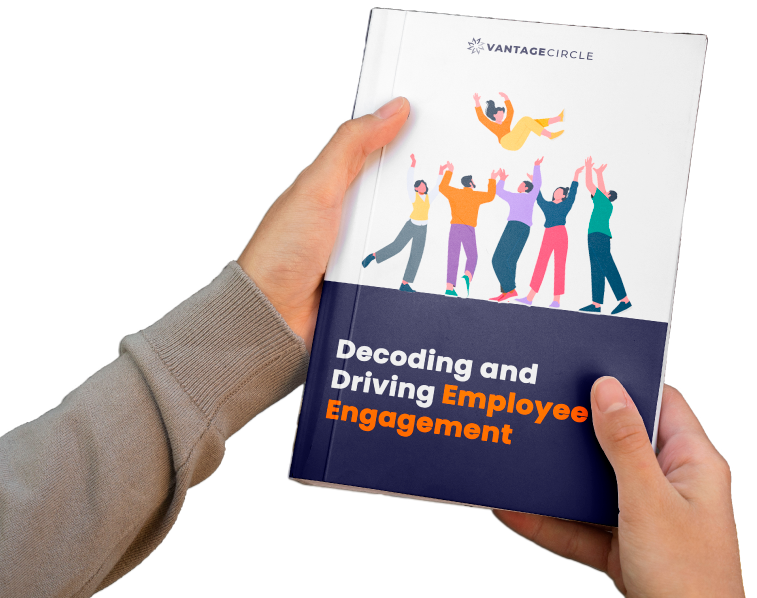5 Factors That Restore The Power Of Intrinsic Motivation In The Workplace
Boosting workplace motivation is a tricksome thing for all managers. It is an integral part of their day to day work, which helps people to improve and do great things in newer ways every day. Quite probably, doing that is the toughest challenge that managers have to face.
Pay hikes act as an excellent motivator for the workforce. But it can’t always be the key to employee happiness and satisfaction. There are a variety of ways to motivate employees.
Thus to motivate your employees effectively, you must understand the different types of motivators. Also, depending on their needs, your people will respond to your efforts differently.
Generally, there are two types of motivation in the workplace- Intrinsic and Extrinsic.
There are lots of debate about the whole Intrinsic vs. Extrinsic motivation debacle. But first, let’s know the primary difference. Intrinsic motivation refers to the personal willingness of the employees to overcome challenges and perform better. They gain satisfaction and enjoyment from what they do.
Contrarily, extrinsic motivation needs external factors like money, fame, and praise.
In this blog, we will apprehend the concept of intrinsic motivation at work, which helps people stay enthusiastic about their nine-to-five.
Getting Deeper Into Intrinsic Motivation In The Workplace
Intrinsic motivation is defined as doing an activity for its inherent satisfaction rather than for some separable consequences.
An intrinsically motivated employee works for the enthusiasm and challenge involved, rather than the external benefits. Here, the reward is the opportunities that employees get to learn, grow, and use their potential. Undoubtedly, it is a more vibrant and more in-depth concept as compared to extrinsic motivation.
Companies generally focus on providing employee satisfaction solely through extrinsic motivators. However, emerging research on workplace motivation suggests that it is better to concentrate more on intrinsic motivation. It is because of the ever-changing needs and demands of the dynamic workforce. To know in detail, let’s understand the varied aspects that explain the why and how of intrinsic motivation in the workplace.
Top 5 Factors That Unlock Intrinsic Motivation In The Workplace
1. Autonomy
When employees get the freedom of how to accomplish their work, it makes the most sense to them. Allow your employees to make a few of their own decisions on the job, using their best judgment. It will give them a definite feel of pride and ownership of their work with a purpose.
Flexible work time is the perfect example where employees can decide to work as per their choice. However, you still need to have limits and propose the most practical work plan.
In the whole approach, you will be responsible for making it work in ways that seem appropriate for your business goals.
2. Challenge
Often, employees don’t want to take up challenges because they are not motivated enough. But the people who get positively challenged always stay intrinsically motivated.
Extrinsic rewards are good motivators but don’t necessarily make employees take up added responsibilities. Also, you may not want to offer a completely different role to someone all of a sudden.
But sometimes you can give them additional tasks which interest them. It is where the concept of talent management comes in. Letting them use their talents in the workplace can provide them with a chance to test themselves. And this will motivate them from within.
3. Recognition
Creating a culture of recognition is the first right step towards intrinsic motivation in the workplace. Although companies choose to recognize external rewards, employees feel internally motivated. It helps in better achievements and boosts employee engagement.
Research shows that the presence of a recognition program keeps 66% of employees motivated at their job. It is another excellent way of saying that the work done is valued and that the employees are an essential part of the company.
Are you looking for an exciting reward and recognition program for your employees? We can help you here. Visit Vantage Circle- the one-stop rewards and recognition platform. It’s easy to use, and is fully customizable to meet your employee needs.
4. Mentorship
Employees seek knowledge and chances to develop themselves. High performing mentors can be a great source of motivation. Connecting your employees to them can help them grow and master their skills. Also, they help to recognize the strengths of individuals empowering them to be more independent.
Open communication, up and down the chain of hierarchy, is essential for intrinsic motivation in the workplace. In-house mentorship or training programs broaden this line of communication too.
At the same time, intrinsically motivated employees love to share their knowledge with their peers. Thus, mentorship programs can be an excellent resource for the company if used properly by the employees.
5. Assessment
When you start following a diet plan, you consider assessing yourself after a few months. It helps you to review your diet chart and keeps you going. It’s similar in case of intrinsic motivation in the workplace.
Looking back at the targets and the achievements, employees know where they stand. They can measure their performance, and quality of work. Constructive feedback from you can help your employees feel that they can improve continuously.
You can also read: Greatest Motivational Quotes For Work We Hand-Picked For You (2022 Edition)
Final Words
Understanding motivation in the dynamic workplace is a crucial step towards creating a sense of purpose in employees. Every company has its unique method that motivates people, but above all, intrinsic factors play a more significant role. However, striking the right balance between intrinsic and extrinsic motivation might be the key to overall business success.
















